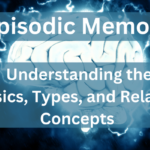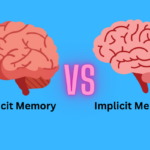Shocking Discovery: The Surprising Link Between Suppressing Emotions and Memory Loss
Can Suppressing Emotions Cause Memory Loss? Research suggests that consistent emotional suppression might lead to memory difficulties. Emotions aid memory formation, and suppressing them could hinder this process, affecting recall. Balancing emotional expression may be vital for optimal memory retention.

Introduction: Unraveling the Hidden Link Between Emotions and Memory Loss
Welcome, curious minds, to a journey through the intriguing labyrinth of emotions and memory. In the vast landscape of human experience, emotions are the colors that paint our memories, infusing them with a depth and vibrancy that makes life truly extraordinary. But what if I told you that there’s a hidden undercurrent at play – a thread that connects our emotional world to the canvas of our memory? Today, we embark on a quest to explore a thought-provoking question: Can suppressing emotions actually lead to memory loss?
In our fast-paced lives, we’ve all encountered moments when we’ve pushed aside emotions to keep up appearances or navigate social situations. It’s a common practice, after all – bottling up the tears, stifling the frustration, or tucking away the elation. But have you ever paused to consider the potential cost of locking away these emotions? Could this habit of emotional suppression be affecting more than just your mood?
Join me as we delve into the heart of this matter, shining a spotlight on the delicate interplay between emotions and memory. We’ll navigate the pathways of the brain where these two forces converge and uncover the complex mechanisms that bind them together. As a mental health expert specializing in memory, my goal is to shed light on the potential implications of suppressing emotions for memory function, providing insights that can empower you to make informed choices about your emotional well-being.
Our journey is a fusion of science and experience, where research findings intersect with real-life stories, and knowledge merges with empathy. As we navigate through the chapters ahead, remember that your emotions and memories are not separate entities – they’re intertwined in a dance that shapes who you are. So, buckle up for an exploration that promises to unravel the mysteries of our emotional tapestry and discover whether suppressing emotions can truly cause memory loss.
The Interplay Between Emotions and Memory
Understanding the intricate interplay between emotions and memory requires a glimpse into the remarkable way our brains function. It’s a tale of how experiences etch themselves into our minds, often through the lens of our emotions.
Boost Focus Today: Elevate brainpower with the ancient Himalayan secret – enhance memory and mental performance.
Emotional Memories: Vivid Imprints
Close your eyes and think back to a particularly emotional event in your life. Maybe it’s the elation of a graduation day or the heartache of a goodbye. Chances are, these memories are vivid and rich in detail. Why is that? Emotions serve as a sort of highlighter for the brain, emphasizing experiences that matter to us. This phenomenon isn’t just a quirk of our minds; it’s deeply rooted in the brain’s architecture.
The Amygdala’s Role: The Emotional Alarm Bell
Enter the amygdala, a small almond-shaped structure nestled deep within the brain. Often hailed as the brain’s emotional hub, the amygdala is responsible for processing emotions and assigning emotional significance to experiences. When you encounter something emotionally charged – whether it’s heartwarming or anxiety-inducing – the amygdala rings the alarm bells, ensuring that the memory of that moment is etched into your mind more vividly.
The Hippocampus: Your Memory’s Librarian
Now, let’s introduce another crucial player: the hippocampus. Imagine it as your brain’s librarian, organizing and cataloging memories. When the amygdala signals an event as emotionally important, the hippocampus steps in to weave those experiences into the fabric of your memory. This is why emotionally charged memories are often more memorable; they’re anchored by the emotions they evoke.
Emotion’s Power to Enhance Recall
Why do emotional memories stick around longer? One reason lies in the brain’s reward system. Positive emotions, like joy and excitement, trigger the release of neurotransmitters like dopamine, creating a sense of pleasure. This positive reinforcement encourages the brain to hold onto those memories, preserving them for future reference.
The Dark Side: Emotionally Charged Trauma
However, the interplay between emotions and memory isn’t always rosy. While positive emotions can enhance memory recall, traumatic or distressing events can lead to intrusive memories that haunt us. The emotional charge of these memories can make them difficult to forget, sometimes contributing to conditions like post-traumatic stress disorder (PTSD).
Understanding Emotional Suppression
Emotional suppression, often regarded as a coping mechanism, involves consciously restraining or concealing emotional reactions. While it’s natural to regulate emotions in certain situations – like maintaining composure during a professional meeting – chronic emotional suppression can create an internal conflict. As a mental health expert specializing in memory, I’ve witnessed the impact of long-term emotional suppression on cognitive function.
When individuals consistently push down their feelings, they inadvertently create a pressure cooker effect within themselves. The act of bottling up emotions can lead to a buildup of stress and tension, much like steam accumulating in a sealed container. This chronic tension doesn’t just vanish; it seeps into various aspects of one’s mental landscape, potentially manifesting as heightened anxiety, irritability, and even contributing to depressive symptoms.
While suppressing emotions might seem like a quick fix, it’s essential to recognize that its consequences might extend beyond one’s emotional state, potentially affecting memory and overall cognitive well-being.
Emotional Suppression and Psychological Impact
Emotional suppression, the conscious effort to conceal or stifle one’s emotions, can have profound psychological implications that extend beyond immediate emotional regulation. While it’s natural to occasionally keep our emotions in check, chronic emotional suppression can set the stage for a range of detrimental effects on mental well-being. Imagine constantly bottling up frustration, sadness, or even joy.

The pressure cooker analogy comes to mind, as this ongoing suppression can lead to heightened stress levels, persistent anxiety, and even pave the way for the emergence of depression. Think of emotions as guests at a gathering; ignoring them doesn’t make them disappear, and they’ll often find alternative ways to make their presence felt.
The tension caused by suppressing emotions can seep into various aspects of life, affecting relationships, self-esteem, and overall emotional resilience. It’s crucial to recognize that emotions are a natural part of the human experience, and attempting to stifle them can result in a pressure that, if left unchecked, might eventually impact not only psychological well-being but also cognitive function, particularly memory.
Stress, Cortisol, and Memory: Unraveling the Neurochemical Cascade
To understand the intricate relationship between suppressing emotions and memory loss, we must delve into the realm of stress and its impact on memory. When stress takes center stage, a key player emerges: cortisol, often referred to as the “stress hormone.” Stress triggers the release of cortisol, an evolutionary response aimed at priming the body for fight or flight.
However, when stress becomes chronic due to constant emotional suppression, the system can go awry. Elevated cortisol levels have been linked to an array of physiological effects, and their influence extends to memory-related brain regions. Research suggests that persistent stress and high cortisol levels can impede the proper functioning of the hippocampus, a region vital for memory formation and consolidation.
Over time, this interference could potentially lead to memory deficits. So, while occasional emotional regulation is part of a healthy repertoire, maintaining a heightened state of stress through continuous emotional suppression might inadvertently impair our ability to remember and recall essential information.
The Role of the Hippocampus in Memory
The hippocampus, a remarkable seahorse-shaped structure nestled deep within the brain, plays a pivotal role in the intricate world of memory. Think of it as your memory’s command center. It’s responsible for transforming fleeting experiences into lasting memories, much like a librarian cataloging books in a vast library.
This tiny powerhouse orchestrates the consolidation of information from short-term to long-term memory, allowing you to remember your first day of school, a cherished family vacation, or even the lyrics to your favorite song. However, chronic stress, often fueled by the suppression of emotions, can cast a shadow on this vital process.
Research suggests that prolonged exposure to stress hormones, such as cortisol, can disrupt the delicate balance of the hippocampus, potentially leading to memory deficits. As we delve into the connection between emotional suppression and memory loss, it becomes clear that nurturing the well-being of both your emotions and your hippocampus is essential for maintaining a vibrant memory landscape.
Research Findings on Emotional Suppression and Memory Loss
Recent research has shed light on the intriguing connection between emotional suppression and memory decline. Studies have delved into the complexities of this relationship, revealing compelling insights into how our emotions impact our ability to remember. For instance, one study conducted with a diverse group of participants found that those who habitually suppressed their emotions demonstrated a noticeable decrease in their ability to accurately recall past events.
Another investigation explored the phenomenon of “tip-of-the-tongue” experiences – those moments when we can’t quite retrieve a word or name – and revealed a potential link between chronic emotional suppression and difficulties in remembering everyday details. These findings underscore the far-reaching consequences of emotional suppression on memory, prompting us to consider the importance of embracing our emotions for both our mental well-being and cognitive function.
Mechanisms Behind Memory Impairment
The mechanisms through which emotional suppression can lead to memory impairment are intricate yet enlightening. Chronic emotional suppression can trigger a cascade of physiological responses, primarily involving the release of stress hormones like cortisol. Elevated cortisol levels, intended for immediate survival responses, become problematic when they persist over time due to emotional suppression.

This prolonged stress response can lead to structural changes in the hippocampus, a brain region crucial for memory consolidation. The chronic presence of cortisol has been linked to reduced hippocampal volume and impaired synaptic connections, ultimately hampering the brain’s ability to efficiently encode and retrieve memories.
Furthermore, the stress-induced disruption of sleep patterns and attentional processes can create an environment unfavorable for effective memory formation. Consequently, these multifaceted effects of emotional suppression and chronic stress contribute to the observed memory impairments, providing us with a deeper understanding of the intricate relationship between emotions and cognitive function.
Coping Strategies for Healthy Emotional Expression
When it comes to managing emotions in a way that supports both your mental health and memory, a toolbox of coping strategies is at your disposal. One effective technique is mindfulness, which involves being present in the moment and observing your emotions without judgment. This practice can help you process emotions in real-time, preventing them from building up and potentially impacting your memory.
Additionally, journaling can be a powerful outlet for emotions. Putting your thoughts on paper not only helps you understand your feelings better but also allows you to track patterns and triggers over time. Engaging in open conversations with friends, family, or a mental health professional can provide a safe space to express your emotions and receive valuable insights.
Remember, seeking help when needed is a sign of strength, not weakness. Lastly, don’t underestimate the power of engaging in hobbies that bring you joy. Activities like painting, exercising, or playing a musical instrument can provide an outlet for emotions, reduce stress, and contribute to a healthy emotional landscape that supports optimal memory function.
Real-Life Case Studies
Let’s take a closer look at how emotional suppression can manifest in real life. Consider the story of Emily, a diligent professional who prided herself on always staying composed, even in challenging situations. Over time, Emily noticed that she struggled to recall specific details during important work meetings and social gatherings. She often found herself searching for words and struggling to remember crucial points.
Digging deeper, it became evident that Emily’s relentless emotional suppression was taking a toll on her memory. Through therapy and adopting healthier emotional regulation strategies, Emily began to experience a remarkable change.
As she learned to acknowledge and express her emotions in a balanced way, her memory improved, and she regained her confidence in various aspects of life. Emily’s story serves as a testament to the tangible effects of addressing emotional suppression on memory function and overall well-being.
Can Suppressing Emotions Cause Memory Loss Conclusion
Thank you for reading our post on Can Suppressing Emotions Cause Memory Loss. In the realm where emotions and memory intertwine, our exploration has uncovered profound insights into the potential consequences of suppressing emotions. The question of whether suppressing emotions can cause memory loss leads us to a significant crossroads where mental health and cognitive function intersect.
We’ve journeyed through the neural landscapes of the brain, understanding how emotions infuse memories with vividness and significance. The amygdala and hippocampus, those memory architects, collaborate to etch emotional experiences into our mental tapestry. But what happens when we consciously shroud these emotions, stifling their expression?
Emotional suppression, a mechanism often adopted to navigate societal norms or avoid confrontation, can indeed cast a shadow over memory. As we delve into the psychological implications, we uncover a pressure cooker of stress and anxiety. Chronic suppression can lead to emotional exhaustion and impact not only our mental well-being but also the very fabric of our memory.
We’ve deciphered the language of cortisol – the stress hormone that surges in response to emotional suppression and stress. Its prolonged presence can insidiously chip away at the hippocampus, our memory’s sanctuary. The hippocampus, that remarkable seat of memory formation, becomes vulnerable to the weight of prolonged emotional suppression.
Through the lens of research, we’ve glimpsed studies that illuminate the connection between emotional suppression and memory impairment. The intriguing puzzle pieces unveil themselves – revealing correlations between individuals who habitually suppress emotions and their struggles with memory recall.
Diving deeper, we’ve uncovered potential mechanisms – disrupted sleep, scattered attention, and neural plasticity’s compromise – which collectively conspire to impact memory. It’s as if a domino effect unfolds, with each toppled piece influencing the next in a cascade that reverberates through our cognitive architecture.
However, this journey doesn’t end with a dire warning; rather, it unveils a path towards holistic well-being. The coping strategies we’ve explored offer a lifeline, guiding us towards a healthier emotional landscape. Mindfulness, emotional regulation techniques, and seeking professional help when needed can serve as beacons of light in the maze of emotional suppression.
Our sojourn through real-life stories underscores the lived experiences of individuals who have grappled with memory loss due to suppressing emotions. The transformation that arises from embracing emotions and seeking professional support holds promise for a brighter future – one where memory thrives in tandem with emotional well-being.
In closing, the evidence is compelling: suppressing emotions can indeed cast a shadow over memory’s brilliance. The dance between emotions and memory, once harmonious, can falter when emotions are stifled. As we stand at this intersection, the choices we make about how we express, process, and honor our emotions can influence not only our mental health but also the tapestry of our memories. It’s a reminder that the journey towards a vibrant mind and enriched memory begins with nurturing a balanced emotional landscape.
Frequently Asked Questions (FAQ’s)
FAQs: Can Suppressing Emotions Cause Memory Loss?
Q1: Is it true that suppressing emotions can lead to memory loss?
A1: Yes, there is evidence to suggest that chronic emotional suppression can contribute to memory problems. Emotions play a crucial role in memory formation, and suppressing them might hinder the brain’s ability to encode and recall events effectively.
Q2: How do emotions affect memory?
A2: Emotions are like anchors for memories. When we experience strong emotions, such as joy, fear, or sadness, the brain releases certain chemicals that enhance the encoding and consolidation of memories. These emotionally charged memories tend to stand out and are more likely to be remembered vividly.
Q3: What is the relationship between stress, cortisol, and memory loss?
A3: Chronic stress triggers the release of cortisol, a stress hormone. Elevated cortisol levels over an extended period can impact the brain’s memory-related structures, such as the hippocampus. Prolonged stress and high cortisol levels have been linked to memory impairments and even structural changes in the hippocampus.
Q4: Are there any strategies to prevent memory loss caused by emotional suppression?
A4: Absolutely. The key is to find a healthy balance between expressing and managing emotions. Techniques like mindfulness, journaling, and engaging in regular physical activity can help regulate emotions and reduce stress. Seeking professional help from therapists or counselors can also provide valuable guidance in managing emotions and preventing memory issues.



